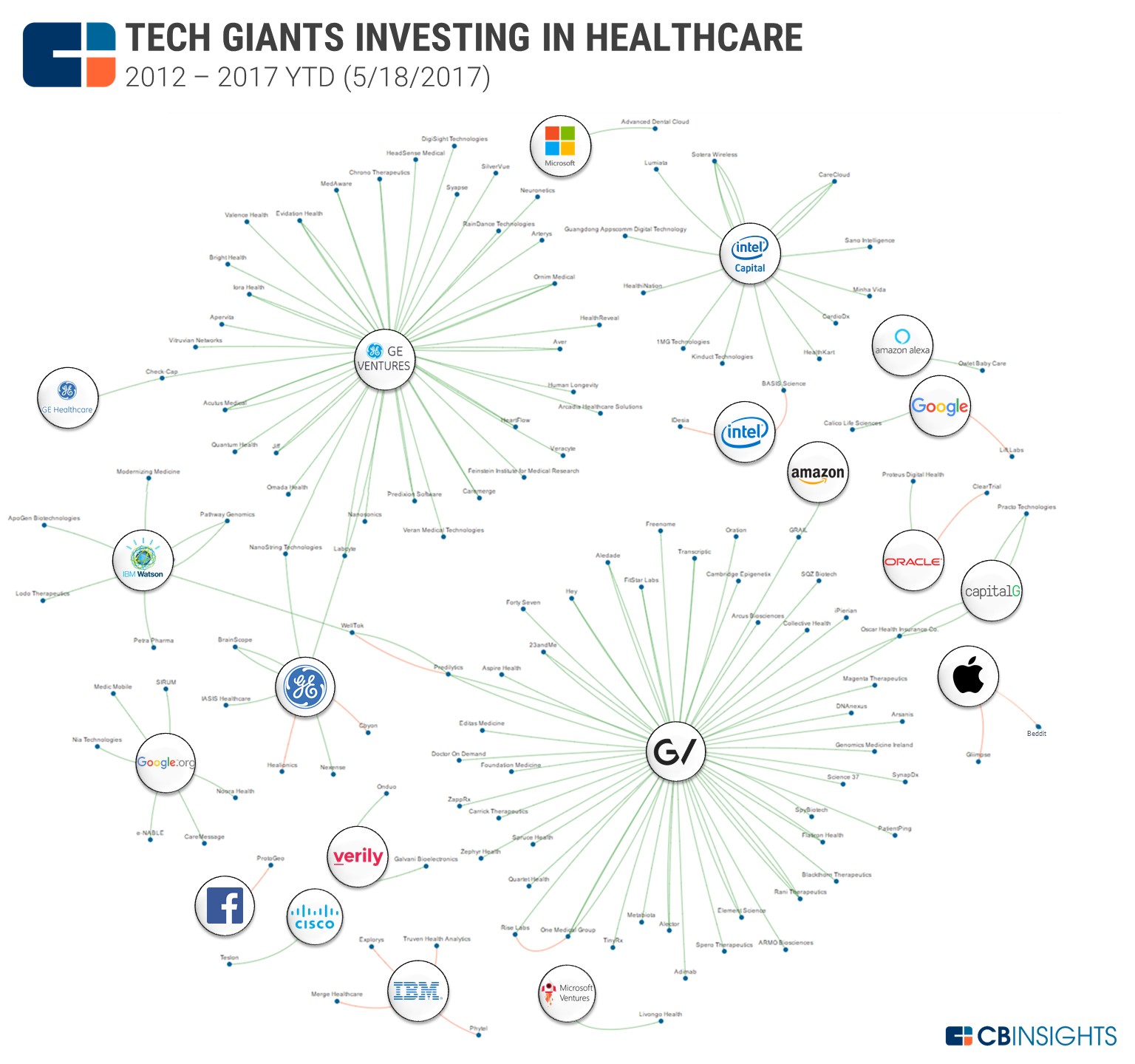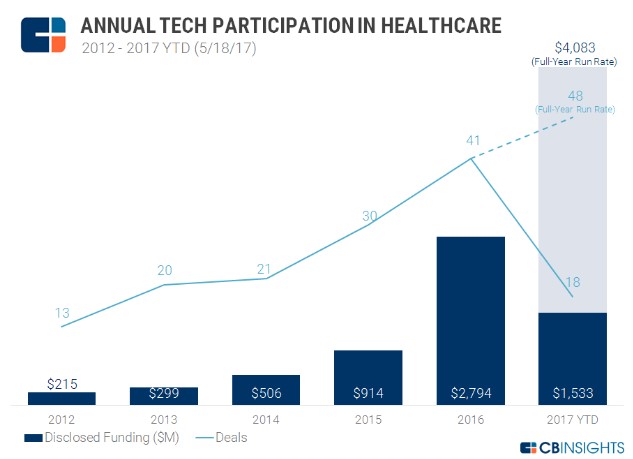The healthcare industry is facing daunting challenges. Demand for accessible care continues to outstrip available resources, costs are skyrocketing, and healthcare companies are unable to keep up. Global healthcare spending is projected to reach $8.7 trillion by 2020, mainly driven by a rapidly aging population in developed economies.
And now big tech has stepped up. The story is no longer about startups disrupting healthcare.
Unfortunately, the industry is riddled with too much red tape bureaucracy and regulation for this to be done in a conventional way. Instead, it’s the big tech companies that are eyeing to invade the space.
Apple, IBM, Amazon, GE, Intel and Alphabet are placing their bets in the $3-trillion industry and driving a major digital health renaissance. And they’re viewing this as something between a rescue mission and a great business opportunity. The fusion of healthcare and tech is expected to lower costs and provide a better experience for both healthcare professionals and patients.

(Click to enlarge)

(Click to enlarge)
Tech Advancements in Healthcare
Here’s a peek into how big tech is revolutionizing healthcare delivery.
#1 Apple
• Has released Apple ResearchKit for health researchers
• Acquired Beddit, a sleep-tracking tech company
• Has designed a health app that acts a single repository for a wide variety of health data
#2 International Business Machines (IBM)
• Owns Watson Health Technology
• IBM Cloud used for provider billing solutions
• Struck a number of deals with pharmaceutical and genomics companies including Pathway Genomics (2014, 2016), ApoGen Biotechnologies (2016), Petra Pharma (2016) and Lodo Therapeutics (2016). Related: What Role Will The Saudis Play In Tesla's Private Listing?
#3 Amazon
• Amazon Echo being tested as home healthcare tool
• Invested in Grail, a cancer detection startup
• Partnered with JPMorgan and Berkshire Hathaway to form an independent healthcare company for employees
• Looking into ways to enhance the distribution of medical supplies
#4 General Electric (GE)
• GE Ventures funded genome sequencing company Human Longevity in 2016
• Has struck deals with HealthReveal, a company that predicts adverse health effects and Arcadia Healthcare Solutions, an ERM data analytics company
#5 Intel
• Acquired Basis Science, heart rate monitor developer, and Idesia, a company that provides security identification technology solutions
• Invested in Carecloud (cloud-based medical record and billing software) and Sotera Wireless (wireless devices for in-patient monitoring of various biometrics)
#6 Alphabet (Google’s parent company)
• Alphabet is by far the most active tech company in healthcare and has co-founded Calico Life Sciences
• Made investments in Oscar Health, Fulcrum Therapeutics, Clover Health, SpyBiotech, Spero Therapeutics, Magenta Therapeutics, Arcus Biosciences, Forty Seven and Practo Technologies
• Acquired Lift Labs
Related: Investors Flee Emerging Markets Amid Lira Crisis
By The Numbers
A key part of healthcare reform involves the use of technology to address issues such as access, cost and value.
Tech is already having a big impact on a number of areas such as medical devices, medical record systems and telemedicine software. A growing number of digital therapeutics companies are helping patients manage chronic conditions at home.
• 70 percent of healthcare organizations across the globe are expected to invest in consumer-facing apps for virtual care and remote monitoring
• Wearable technology is expected to lower hospital costs by as much as 16 percent over the next five years and save $200 billion
• It’s estimated that in 2018, 65 percent of interactions with healthcare facilities will be done through mobile phones
• Smartphone owners can now monitor blood pressure, heart rate, oxygen levels and temperature
By Alex Kimani for Safehaven.com
More Top Reads From Safehaven.com
















